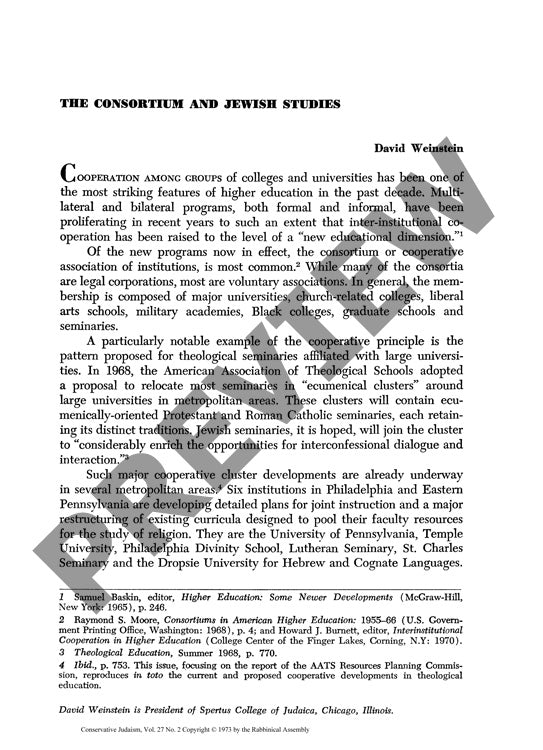The Consortium and Jewish Studies
Couldn't load pickup availability
Inter-institutional cooperation emerged as a transformative force in American higher education during the 1960s, reshaping the landscape of Jewish studies programs and theological education. As mainstream universities expanded their Judaic studies offerings, Hebrew colleges and seminaries faced mounting pressures of educational isolation, resource constraints, and competitive challenges. Through descriptive analysis of the consortium movement, particularly among theological seminaries and Hebrew colleges, a clear pattern of bilateral and multilateral partnerships emerged. The American Association of Theological Schools' 1968 proposal to create "ecumenical clusters" around major metropolitan universities exemplified this trend. Spertus College of Judaica's multilateral consortium in Chicago serves as a compelling case study, having forged cooperative agreements with nine institutions including Roosevelt University, DePaul University, and the University of Illinois at Chicago Circle. These consortium arrangements yielded reciprocal benefits: universities gained access to specialized Judaic faculty and curriculum, while Hebrew colleges secured university resources and enhanced academic legitimacy. The evidence demonstrates that inter-institutional cooperation offers a viable strategy for Jewish educational institutions to maintain excellence and cultural distinctiveness while achieving cost-effective operations, suggesting a sustainable alternative to institutional isolation.

More Information
-
Physical Description
-
Publication Information
Published 1973
ISBN
-
Publication Credits
David Weinstein

